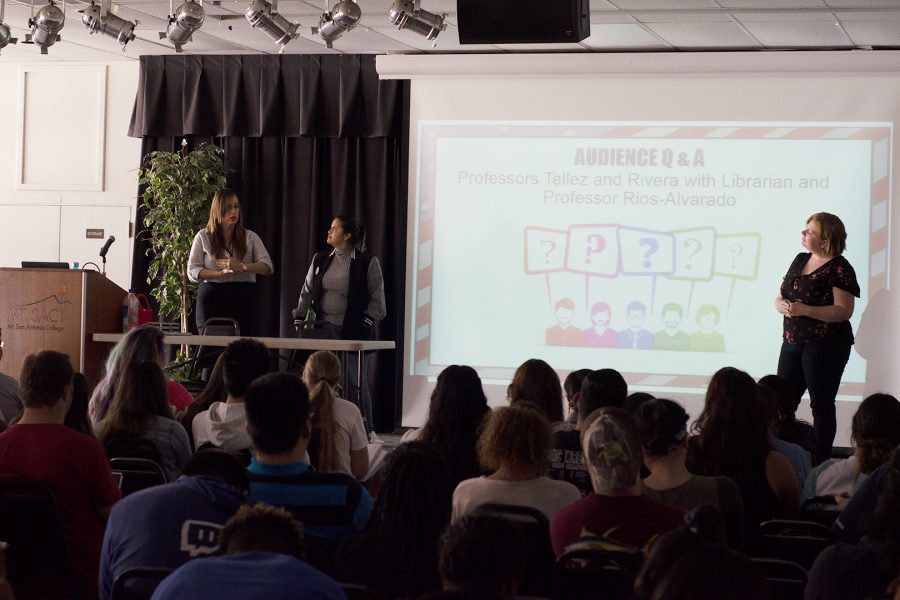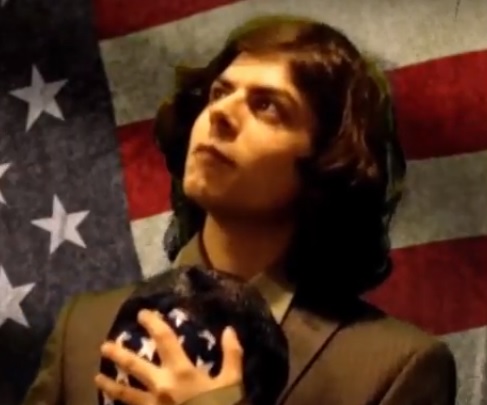Pocket Constitutions were handed out to a few students outside 9C, but inside a discussion about free speech looms.
Constitution Day was Sept. 17, but Political Science Professor Kelly Rivera had to postpone the event a day because of conflicting schedules.
Regardless of date, the event reminded students of their rights and explored the concept of free speech.
Before professors spoke, a debate was staged between two partners on the forensics team. They both spoke about freedom of speech, and were assigned the side they would be arguing, an hour before the event.
Janay Bombino represented the Affirmative, and Caitlyn Carr served as a representative for the Negation.
The Affirmative position supports the resolution, and the Negation advocated for limitations on speech.
Bombino opened up her case by speaking in support of freedom of speech.
Among her subpoints was the assertion that a higher quality of life is had when people are able to express themselves freely.
In a cross-examination, she said that the college campus parallels the real world, and that tension is a part of conversation.
Carr opened her case by calling Bombino’s statements “great in theory” before Carr said that access is more important.
She related access to safety, and said that “guardrails” must be set up, similar to other restrictions in public speaking.
Carr’s argument also compared ad hominem attacks to hate speech, because those attacks focus on the character instead of the ideas.
In cross-examination, she said that people must feel safe in education, and argued for people putting restrictions on themselves outside of school so that others do not feel attacked.
When rebuttals came around, the two seemed to agree that restrictions should be on the individual’s part.
Bombino argued for self regulation, saying that the good speech will overtake the bad. She also bluntly said that guardrails are for high school.
When Bombino closed, she said that the most important thing was to not restrict others, but to let people self regulate. She pointed to her prior arguments that asked who would determine what speech is hate speech and what speech is not.
Carr finished by saying that hate speech incites violence, and restrictions can only happen if it is determined that the speech incites violence.
Political Science Professor Kelly Rivera then held a talk, where she cited the first amendment, a supreme court dissenting opinion, and read an excerpt regarding a bubble that filters speech.
She then went over court cases and studies that show the limits and lengths of free speech.
History Professor April Tellez spoke of activism throughout history and said we are living in a new civil rights era.
Librarian Eva Rios-Alvarado then spoke of the resources here for students at Mt. SAC to access information.
The three then held a short question and answer session and told the crowd that freedom of speech does not free one from consequences.
They finished by asking the crowd to become more engaged.
If people do wish to get engaged, a voter registration booth was in front of 9C the entire time, and people interested in the forensics (debate) team can Building 18, Room 15 at 5 p.m. for the first meeting of the Forensics team.



